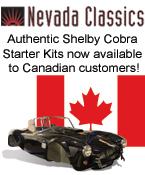 
 Main Menu
Main Menu
|
 Nevada Classics
Nevada Classics
|
 Advertise at CC
Advertise at CC
|
 May 2024
May 2024
|
| S |
M |
T |
W |
T |
F |
S |
| |
|
|
1 |
2 |
3 |
4 |
| 5 |
6 |
7 |
8 |
9 |
10 |
11 |
| 12 |
13 |
14 |
15 |
16 |
17 |
18 |
| 19 |
20 |
21 |
22 |
23 |
24 |
25 |
| 26 |
27 |
28 |
29 |
30 |
31 |
|
|
 CC Advertisers
CC Advertisers
|
|

05-28-2005, 01:40 PM
|
|
Senior Club Cobra Member

|
|
|
Join Date: Aug 1999
Location: Ellington,
CT
Cobra Make, Engine: Classic Roadster 351W, T5, Red & White
Posts: 3,478
|
|

 Not Ranked
Not Ranked
Technical comparison of grade 5 and grade 8 bolts....if somone with the expertise would comment etc
http://www.rockcrawler.com/techrepor...ners/index.asp
Not having the expertise, have always thought more or a higher grade is better...........but,
__________________
2014 Porsche Cayman S, 2014 M-B CLA 45 AMG,
Unkown:"Their sweet lines all but take my breath away, and I desire them as much for their beauty as for their use "
|

05-28-2005, 01:45 PM
|
|
CC Member

|
|
|
Join Date: Dec 2001
Location: Louisville,
KY
Cobra Make, Engine: I'm Cobra-less!
Posts: 9,391
|
|

 Not Ranked
Not Ranked
Don, this guy's page basically goes along with the same points that I was making.
I guess there are a couple members here who may disagree. I have my own thoughts and opinions, but there are a lot of people on here with more experience and knowledge than me. I'm an ME....but I've only been out of school for 3 years.....I have lots to learn.....
One of the biggest things I've learned so far is: things don't always happen the way they should in theory. 
__________________
www.lykinsmotorsports.com
|

05-28-2005, 04:20 PM
|
|
CC Member

|
|
|
Join Date: Dec 2003
Location: Gurnee,
IL
Cobra Make, Engine: Kirkham #259
Posts: 1,394
|
|

 Not Ranked
Not Ranked
mikiec
We always use Course Threads when threading into Aluminum.....or Magnesium ..... much stronger.....
We perfer to use a Course thread Tiime-sert into Aluminum
Morris
__________________
Morris
|

05-28-2005, 05:22 PM
|
 |
Senior Club Cobra Member

|

|
|
Join Date: Mar 2001
Location: Northport,
NY
Cobra Make, Engine: Kirkham, KMP178 / '66 GT350H, 4-speed
Posts: 10,362
|
|

 Not Ranked
Not Ranked
Quote:
Originally posted by mikiec
An additional question about bolts...
What is the difference between a fine thread and coarse thread?
Mike
|
Mike...from an article in Stock Car Racing...
"...Given the same alloys and heat treatments, a bolt with fine threads can be tightened to a torque 9 percent greater than one with coarse threads. So why are not all bolts made as fine threads?
Often the material with the internal thread-cast iron or aluminum, for instance-is not as strong as the bolt. The weaker or softer material needs the wider gripping surface of the coarse-thread bolt.
With fasteners that are tightened and loosened frequently, the wider coarse thread has more wear resistance.
The last reason, for me at least, is that the coarse-thread fastener is quicker to use and easier to start the threads together." |

05-28-2005, 10:03 PM
|
 |
Senior Club Cobra Member

|
|
|
Join Date: Jun 2000
Location: Gilford,
NH
Cobra Make, Engine: FFR 302 carb
Posts: 8,121
|
|

 Not Ranked
Not Ranked
Thanks Ron and Morris..
Mike
|

05-28-2005, 10:42 PM
|
|
CC Member

|
|
|
Join Date: Feb 2005
Cobra Make, Engine: ERA #164 427 Med Rise Side-Oiler, 4 Speed Toploader
Posts: 83
|
|

 Not Ranked
Not Ranked

Just about everything blykins has to say is correct.
Grade 8 bolts will handle more stress than grade 5 in every loading case (assuming identical bolts). It doesn't matter if the load is tensile, shear, or bending moment. That is assuming they are installed correctly. Grade 8 bolts are much more succeptable to failure if they are not pretensioned to their minimum approved value, or if washers are not used when required. ESPECIALLY in cases of cyclic or redundant loading...which I would imagine is the case in most vehicle chassis.
However, grade 8 bolts' reduced ductility means that microscopic crack propogation due to manufacturing defect or otherwise will occur at a much faster rate. Grade 8 bolts will typically fail catasrophically, whereas grade 5 may give you some warning.
Using grade 8 in every application would not only be irresponsible, but wasteful. Even a properly installed grade 8 bolt becomes useless when the connection will fail in block shear or tearout before the bolt itself fails.

|

05-29-2005, 12:31 PM
|
|
CC Member

|
|
|
Join Date: Sep 2003
Cobra Make, Engine: Early 427 car
Posts: 589
|
|

 Not Ranked
Not Ranked
 Fine vs Coarse
Fine vs Coarse
Looking briefly through some old reference material, fine thread provides a more reliable clamp up, as the thread ramp is not as steep. Also, fine thread has better fatigue strength for a given dia because the fine thread profile represents a smaller notch than coarse thread, even though the root radius of the coarse thread is larger. Another contributor is the minor diameter/pitch diameter of fine thread is larger than coarse.
Coarse thread is more for softer materials, like aluminum or magnesium, but are not used in aerospace because inserts (like slimserts) are virtually always used in the softer parent structure.
By the way, cold worked threads and under head radius are significantly stronger than non-cold worked, but you hardly ever see them in automotive parts.
Last edited by Byots; 05-29-2005 at 08:29 PM..
|

05-29-2005, 01:35 PM
|
|
Banned

|
|
|
Join Date: Apr 2005
Location: Brookings,
OR
Cobra Make, Engine: P. O. of KMS 91,92,193,196,197,205,207,S024
Posts: 51
|
|

 Not Ranked
Not Ranked

O.K. can i weigh in here simpllt because i apparently iniated this thread and have taken some serious flak as a result of my opinions which are admittedly not backed up by any sort of college degree, only practicle experience. first of all let me state that my theory on race car assembly has been labled on this forum as '' overkill'' thankyou for the compliment i would much rather spend a few dollars on ''over kill'' than deliver my customer a product based on cost or cost savings .sorry but i would rather work for free rather than endanger my clients life.the current dissertation in this forum is based on the safety and quality on fasteners in assembling a race capable car. my experiance and training are while not accompanied by an engeneering degree is based on training under two mcclaren crew chiefs , guys with the credentials backed up buy their record in the can am and euouripian interseries, so here goes my opinion , #1 a coarse thread bolt is dangerous if installed in anything that does'nt require it i.e a casting,,, why use fine thread ? they are simply stronger compare a fine thread bolt to a coarse bolt the simple fact that a fine thread is aproximatly 15% thicker or contains more mass/ thickness should be evident by simple examination. my other issue with using coarse bolts on chassis componets is the wear factor first of all their should be no part of a bolt exposing the threads to wear on the componets they hold together .... think about it you put a bolt in your suspension and don't allow for grip length you literaly have your car under load cutting it self apart . why do i insist on grade 8 or better fine thread only other than proper application using coarse ? because in my opinion its worth the effort to keep the driver of a ''race capable car alive at the end of the day 'you can't be on the podium if your dead!
__________________
Past owner of:
KMS- 91, 92, 193, 196, 197, 205, 207 AND S024.
REAL SHELBY COBRA's OWNED
CSX 3355, 3358, 2200, 2571, 2295
GT40 #1086
|

05-29-2005, 02:29 PM
|
 |
6th Generation Texan

|
|
|
Join Date: Feb 2002
Location: Devil's Backbone,RR 32,
TX
Cobra Make, Engine: Lone Star Classics #240,Candy Apple Red,Keith Craft 418w - 602 HP,584 TQ
Posts: 8,157
|
|

 Not Ranked
Not Ranked
 Great Thread Guys !
Great Thread Guys !
I have read grip length referred to several times.I did a search on it and found a AN Table on Grip length.
I still don't understand. 
Could someone explain to me what this table says and explain to me in layman's term grip length.And its importance.
http://www.hangtowneaa512.org/techdocs/griplength.html |

05-29-2005, 04:03 PM
|
|
CC Member

|
|
|
Join Date: Nov 2003
Location: New Britain,
CT
Cobra Make, Engine: Size 10 Feet
Posts: 2,993
|
|

 Not Ranked
Not Ranked
"Grip" is the unthreaded shank length and "length" is the overall length not including the head. See here. |

05-29-2005, 05:28 PM
|
|
CC Member

|
|
|
Join Date: Sep 2003
Cobra Make, Engine: Early 427 car
Posts: 589
|
|

 Not Ranked
Not Ranked
 fine vs coarse
fine vs coarse
Forgot to also include a benefit of coarse thread fasteners, the greater thread depth results in better resistance to wear from repeated removals and installation - probably a major reason why they are common in cheaper consumer products. I've seen the aftermath of a helicopter main rotor blade separate from the hub on a balance stand because the fine thread bolts were not changed at a reasonable interval. Fine thread is more precision.....
Last edited by Byots; 05-29-2005 at 05:55 PM..
|

05-29-2005, 08:05 PM
|
|
CC Member

|
|
|
Join Date: Mar 2005
Location: Sydney,
NSW
Cobra Make, Engine: SPF under construction
Posts: 46
|
|

 Not Ranked
Not Ranked
This thread has been most enlightening. Seems that nuts and bolts are to cars which punctuation and spelling are to grammar. Failures can be catastrophic!
Richard Ferguson.
|

05-29-2005, 10:21 PM
|
|
Banned

|
|
|
Join Date: Apr 2005
Location: Brookings,
OR
Cobra Make, Engine: P. O. of KMS 91,92,193,196,197,205,207,S024
Posts: 51
|
|

 Not Ranked
Not Ranked

ok if i read one of the last posts correctly ''coarse threads facillitate repeated removal and installation . and that's important to what? saving money? if you go to any magor aircraft manufacturer and watch how they assemble aircraft you will find that their assemblers are under strict orders that if they drop a fastener they are to leave it and get a new one. at the end of the day these companies 'sweep '' their floors and sell the stuff as surplus. they even lable it as ''sweeps'' in one of the previous posts on this forum a fellow who is far more qualified than me referred to a grade 8 bolt failure as a result of an inclusion , what is the defition af an inclusion? in simple terms it means flaw. when you buy a diomand it is graded among other things based on the amount of inclusions visable to one with training at 10 times magnification. so the bolt failed as a result of a flaw . so blame the bolt or the manufacturer? another poster on this forum claims thay it is legal to install grade 5 hardware in an airplane . all i can say is if he can show me a legal installed fastener in an aircraft of 3/8s diameter or above installed in a critical application i will gladly fly out and kiss his you know what!
__________________
Past owner of:
KMS- 91, 92, 193, 196, 197, 205, 207 AND S024.
REAL SHELBY COBRA's OWNED
CSX 3355, 3358, 2200, 2571, 2295
GT40 #1086
|

05-29-2005, 10:22 PM
|
 |
CC Member

|
|
|
Join Date: May 2002
Location: Higley,
AZ
Cobra Make, Engine: Beck Lister-Corvette
Posts: 256
|
|

 Not Ranked
Not Ranked
Screw the Grade 5 and Grade 8 bolts (pun intended)! Just weld everything together. This also has the secondary benefit of never having to retorque bolts. 
__________________
Racing in a straight line is motorized bowling.
Taking corners (on a track) is a real sport.
Last edited by need4speed; 05-29-2005 at 10:25 PM..
|

05-29-2005, 10:25 PM
|
|
Banned

|
|
|
Join Date: Apr 2005
Location: Brookings,
OR
Cobra Make, Engine: P. O. of KMS 91,92,193,196,197,205,207,S024
Posts: 51
|
|

 Not Ranked
Not Ranked
you are with out question a genius best wishes , jerry
__________________
Past owner of:
KMS- 91, 92, 193, 196, 197, 205, 207 AND S024.
REAL SHELBY COBRA's OWNED
CSX 3355, 3358, 2200, 2571, 2295
GT40 #1086
|

05-29-2005, 10:26 PM
|
 |
CC Member

|
|
|
Join Date: May 2002
Location: Higley,
AZ
Cobra Make, Engine: Beck Lister-Corvette
Posts: 256
|
|

 Not Ranked
Not Ranked
I thought that we all could use a little humor in this thread.
__________________
Racing in a straight line is motorized bowling.
Taking corners (on a track) is a real sport.
|

05-30-2005, 05:26 AM
|
|
CC Member

|
|
|
Join Date: Sep 2003
Cobra Make, Engine: Early 427 car
Posts: 589
|
|

 Not Ranked
Not Ranked
 Grade 5, 8
Grade 5, 8
I'm not recommending one grade bolt over another, just sharing what little I know. The bottom line is the user must select a bolt with adequate properties for the given usage, you decide from there. I will say that I can't remember grade 5 bolts being used in aerospace - it's been awhile for me, but I recall the standard being approx equivalent to grade 8, with other alternatives available. You have to realize there are steel or steel alloy fasteners with strengths a number of levels above grade 8, some over twice as strong. Selection of these higher strength bolts required a thorough assessment of the intended usage, whereas grade 8 equivalents were virtually a default with a generally acceptable level of ductility. Mil spec bolts, however, have much more controlled construction and thorough inspection than automotive/race car grade 8 hardware, so the probability of having an inclusion as Dan mentioned would be far less, as well as the underhead radii, etc would probably be more desireable on the mil spec parts. I recently had to buy some 1/2" "off the shelf" titanium mil spec bolts that cost around $40 each! This doesn't mean grade 5 is no good for Cobras - as Dan said original cars apparently came standard with grade 5 for most suspension areas. I must add, though, that guys who raced these cars in the day had no end to suspension issues - here's an example: http://www.clubcobra.com/photopost/s...cat=500&page=1
So, what the factory did doesn't neccessarily mean it's ideal.
Last edited by Byots; 05-30-2005 at 05:29 AM..
|

05-30-2005, 06:39 AM
|
|
Senior Club Cobra Member

|
|
|
Join Date: Aug 1999
Location: Ellington,
CT
Cobra Make, Engine: Classic Roadster 351W, T5, Red & White
Posts: 3,478
|
|

 Not Ranked
Not Ranked

** Identification Markings on Bolt Heads: ASTM and SAE Standards
http://shopswarf.orcon.net.nz/boltid.htm
** Aircraft Hardware: Overview on bolts, nuts, washers etc., etc.,
http://www.zenithair.com/kit-data/ra/hardware.html
Quotes from the above article regarding aircraft quality :
Do not assume the engineer role by using hardware types or sizes that are contrary to your plans or assembly manual.
Commercial grade hardware found in hardware or automotive stores is legal to use on an experimental airplane but should not be considered for even a moment. Why? Let's look at bolts as an example. Common steel bolts purchased from a hardware store are made of low carbon steel that has a low tensile strength usually in the neighborhood of 50,000 to 60,000 psi. They also bend easily and have little corrosion protection. In contrast, aircraft bolts are made from corrosion resistant steel and are heat treated to a strength in excess of 125,000 psi. The same comparison applies to most hardware items. So, use only aircraft quality hardware on your airplane. Save the other hardware for your tractor.
__________________
2014 Porsche Cayman S, 2014 M-B CLA 45 AMG,
Unkown:"Their sweet lines all but take my breath away, and I desire them as much for their beauty as for their use "
|

05-30-2005, 06:49 AM
|
 |
Senior Club Cobra Member

|

|
|
Join Date: Mar 2001
Location: Northport,
NY
Cobra Make, Engine: Kirkham, KMP178 / '66 GT350H, 4-speed
Posts: 10,362
|
|

 Not Ranked
Not Ranked
All good info here to date...
A quick scan of the posts show we have a few very qualified contributors providing engineering-level answers to the questions of differences in grade, thread, etc....
Now...can our panel bring this good info down to the level of the home builder?
Let's have them begin by enumerating the areas on a chassis and body...such as,
Suspension and control
Steering
Engine, bellhousing, trans
Rear end components
Expand on these subassemblies and indicate the recommended fastener technology for each...and why.
|

05-30-2005, 07:02 AM
|
|
CC Member

|
|
|
Join Date: Nov 2003
Location: Encinitas,
CA
Cobra Make, Engine: BDR 187 Prism Red w/Silver stripes; 427 stroker by Smeding Performance, Tremec TKO600 gearbox
Posts: 131
|
|

 Not Ranked
Not Ranked
Like Ron, I have found this thread to be very enlightening, but have some more basic (newbie) questions:
1. When and why to use flat washers?
2. When and why to use lock washers?
3. When and why to use anti-sieze compound on threads?
4. When and why to use loctite?
__________________
'round Midnight
You'll feel me coming
A new vibration
From afar you'll see me
I'm a sensation!
-Pete Townshend, Tommy
|
 Posting Rules
Posting Rules
|
You may not post new threads
You may not post replies
You may not post attachments
You may not edit your posts
HTML code is On
|
|
|
All times are GMT -7. The time now is 09:23 AM.
|



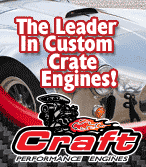

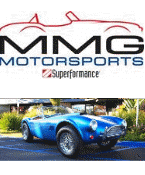
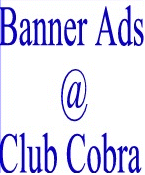


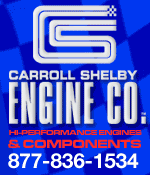











 Hybrid Mode
Hybrid Mode


